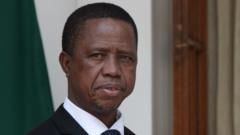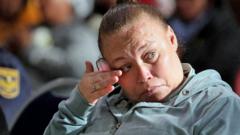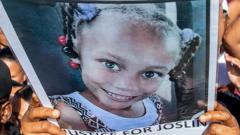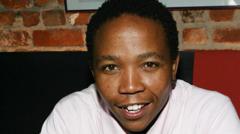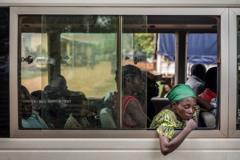South Africa's coalition government is experiencing significant strains following the Democratic Alliance's (DA) opposition to the national budget framework proposed by the African National Congress (ANC). While the ANC secured the vote with support from smaller parties, the DA's dissent has led to court challenges and debates over the coalition's viability. Observers suggest the current situation may be a turning point for the DA's participation in the government of national unity.
Tensions Rise in South Africa's Coalition Government Over Budget Vote

Tensions Rise in South Africa's Coalition Government Over Budget Vote
The coalition government in South Africa faces increasing turmoil as divisions between the ANC and DA deepen following a contentious budget vote, raising questions about the future of their alliance.
South Africa’s coalition government is teetering on the brink of collapse, as fundamental divisions between its largest constituents, the African National Congress (ANC) and the Democratic Alliance (DA), became glaringly apparent during a crucial vote on the national budget. The DA, representing a centre-right stance, opposed the fiscal framework essential for the national budget, dissenting particularly over proposed increases in Value Added Tax (VAT) and advocating for widespread cuts in government spending. In reaction, the ANC, positioning itself as centre-left, dismissed the DA’s push for an “austerity budget” and instead rallied support from various smaller political parties to pass the fiscal framework in parliament with a tally of 194 votes to 182.
This political maneuvering has led the DA to file a court challenge against the vote, labeling it "procedurally flawed." The party's leadership is scheduled to convene soon to assess its future in what is colloquially known as a government of national unity (GNU). According to Professor William Gumede from Wits University's school of governance, the DA is currently weighing its options, contemplating whether the situation represents a critical tipping point or if it should hold off until the court's verdict is delivered.
The coalition was formed less than a year ago when the ANC lost its parliamentary majority for the first time since the end of apartheid in 1994, a strategic move welcomed by South Africa's business circles who view it as essential for economic stability. However, DA spokesperson Willie Aucamp voiced concerns regarding the ANC’s actions, suggesting they have committed a "serious infraction" that shows a lack of willingness to compromise. Helen Zille, DA federal chair, echoed this sentiment, emphasizing the importance of a balanced power-sharing framework while criticizing the ANC's stance as overly demanding.
On the other hand, the ANC retaliated by accusing the DA of betrayal for breaking ranks with their coalition partners. ANC parliamentary chief whip, Mdumiseni Ntuli, expressed uncertainty about the DA's position but affirmed that the GNU remained intact with its other coalition members, despite growing tensions. President Cyril Ramaphosa’s administration further challenged the DA’s stance, asserting that active participation in governance should align with support for the government’s budget.
Interestingly, the DA found itself aligning with historically rival parties, including the Economic Freedom Fighters (EFF) and the uMkhonto weSizwe (MK) party led by former President Jacob Zuma, uniting in opposition to the VAT increase which they argue disproportionately impacts lower-income populations. While DA leader John Steenhuisen criticized the ANC’s governance as disconnected from the realities of South African families, the ANC defended the tax increase as crucial for funding essential public services.
The conflictmarks the latest chapter in a saga of sharp political differences between the DA and ANC, with the DA also pursuing legal challenges against other significant pieces of legislation, including the land expropriation act. This act has previously caused tensions with international entities, particularly during Donald Trump's presidency when aid to South Africa was cut and tariffs imposed.
As South Africa grapples with an unemployment rate surpassing 30% and deteriorating public services, the looming question remains: can the two major political parties reconcile their differences for the sake of national stability, or will continued discord precipitate a deeper economic crisis?







